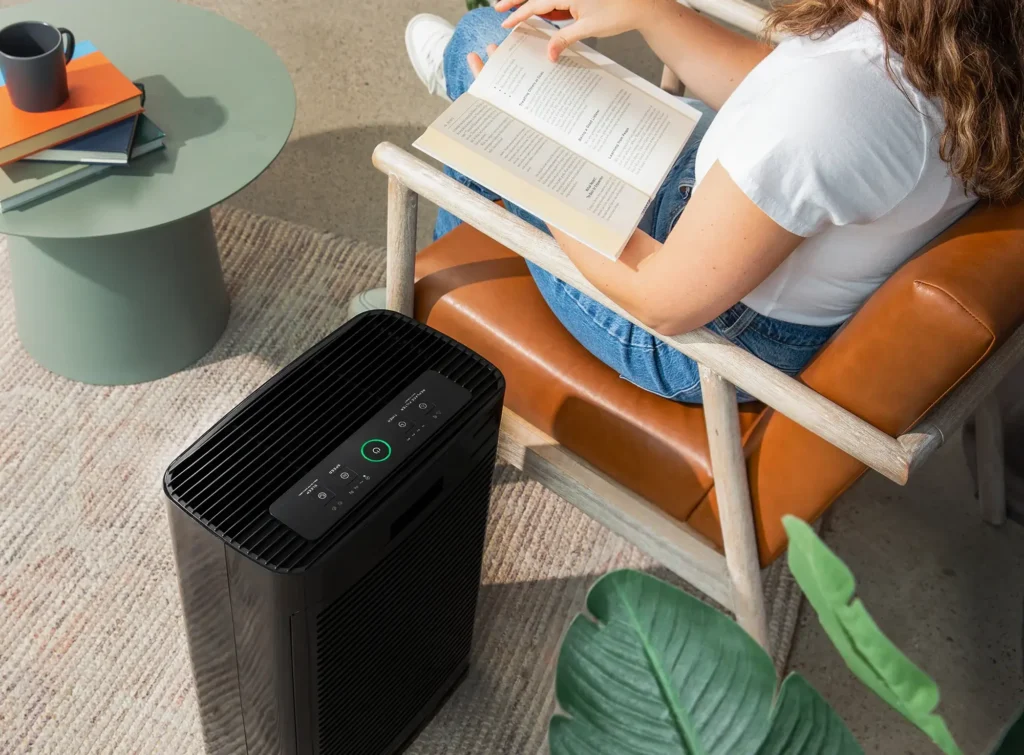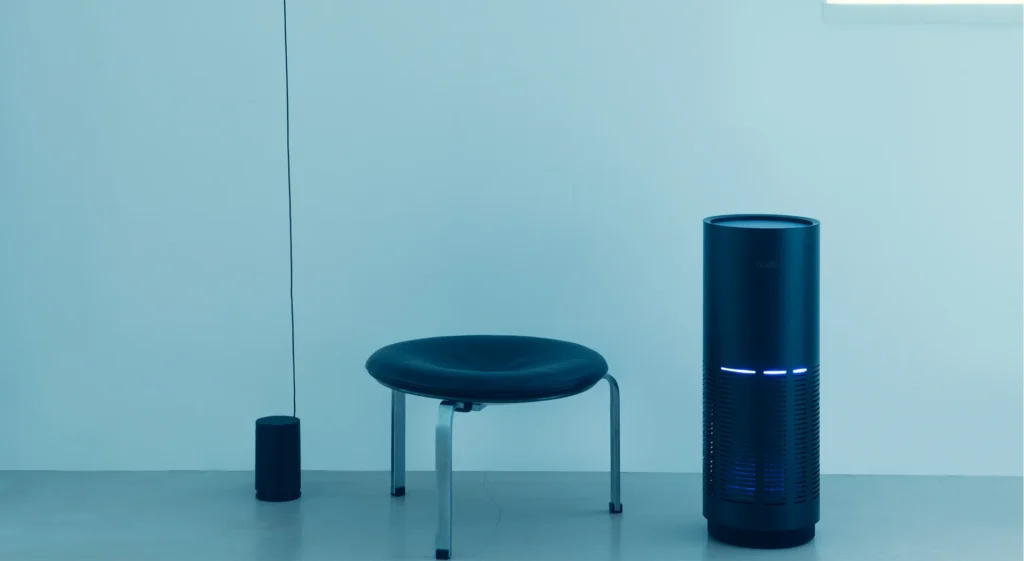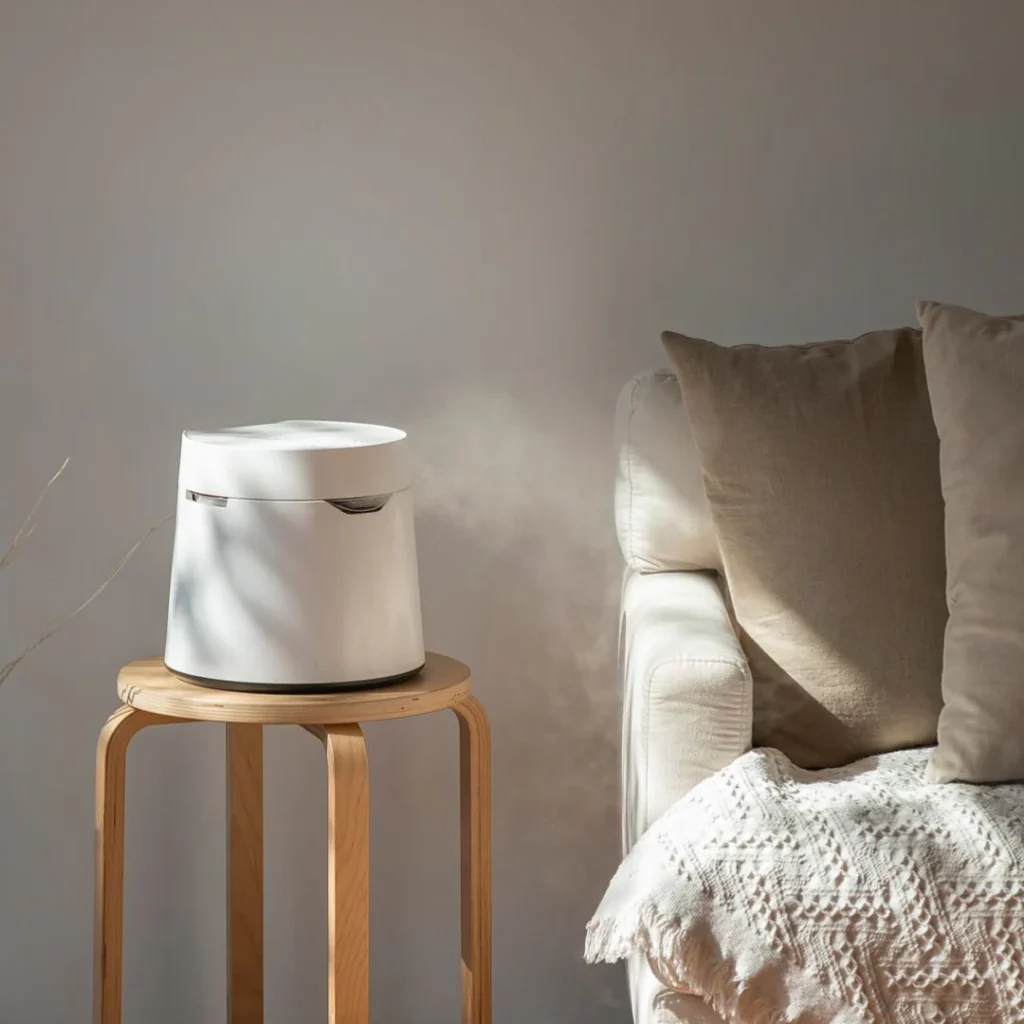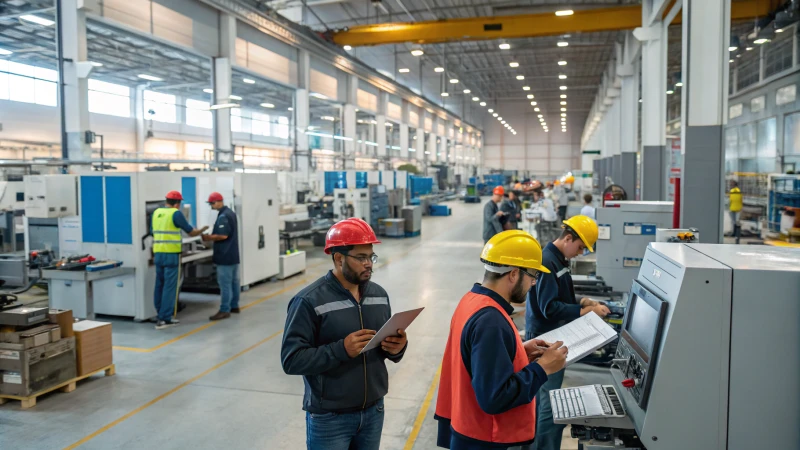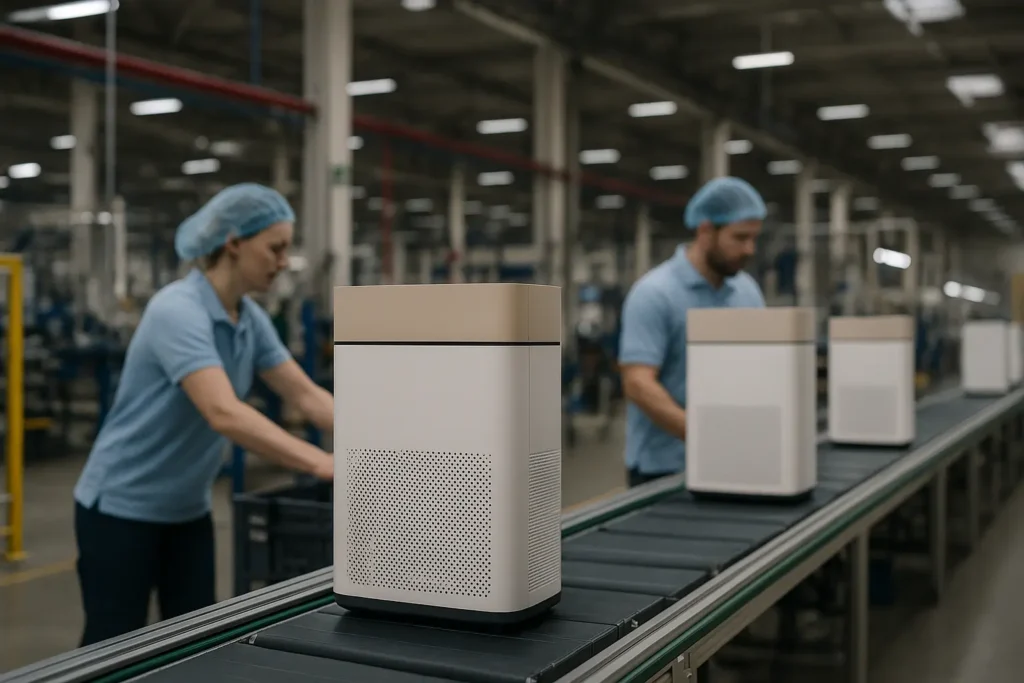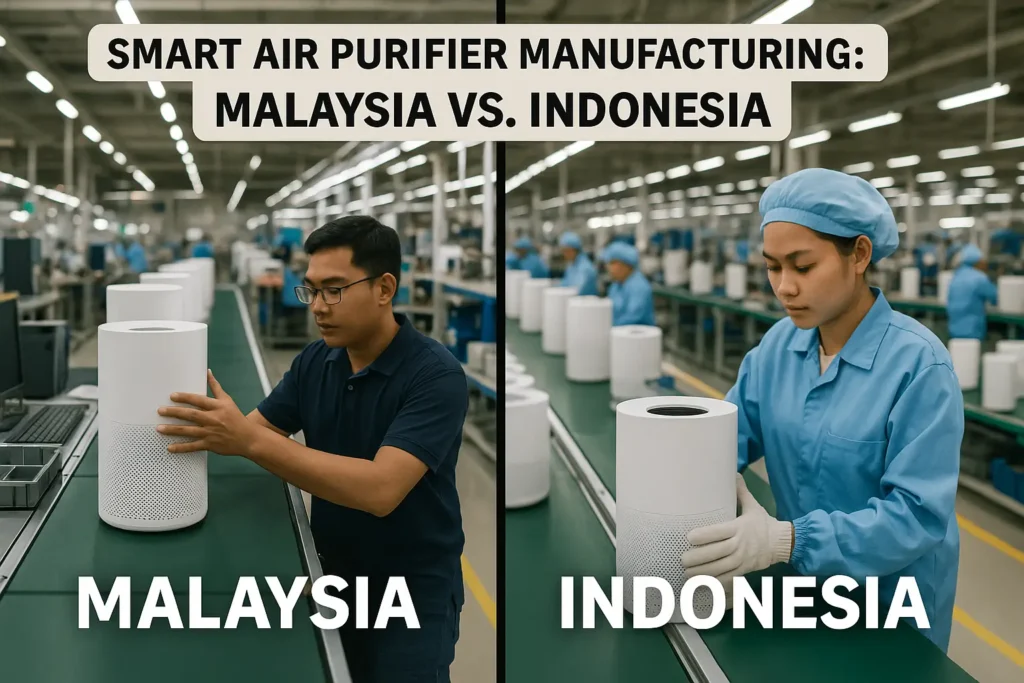공기청정기가 코로나19와 같은 바이러스를 포집하여 죽인다고 합니다. 이것이 사실일까요? 짧은 대답은 놀랍게도 예 에 대한 답변은 다음과 같은 과학적 근거를 통해 더욱 품격 있게 설명해 드리겠습니다.
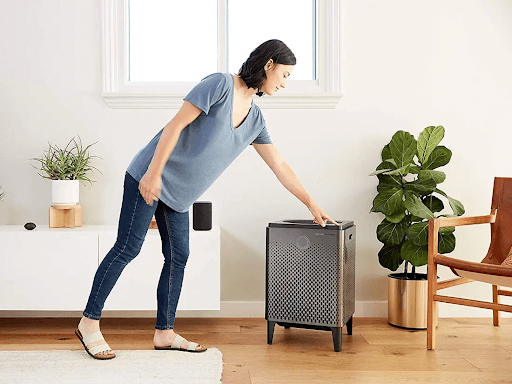
먼저 알아야 할 몇 가지 사항이 있습니다:
COVID-19 바이러스는 0.125 미크론 크기에 가까운 (125나노미터). 이렇게 작은 바이러스는 표준 필터를 통해 공기 중에서 쉽게 걸러지지 않을 수 있습니다.
따라서 부유 바이러스가 없는 안전한 실내 환경을 유지하려면 신뢰할 수 있는 공기 정화 브랜드 올바른 기술로
공기 청정기 특징 HEPA 필터 오염 물질을 필터링할 수 있습니다. 0.3 미크론까지 .
또한 다음과 같은 고성능 UV-C LED 램프는 HisoAir 는 유기체와 바이러스를 살균하고 제거합니다. 기본적으로 자외선은 바이러스의 단백질 코팅을 벗겨내어 효과적으로 바이러스를 비활성화합니다.
여기서부터 자세히 설명하겠습니다.
공기 매개 질병은 어떻게 전염되나요?
2020년 10월, 미국 질병통제센터(CDC)는 다음 사항에 대한 입장을 발표했습니다. 코로나19 바이러스가 전염되는 방법 .
"바이러스는 공기 중에 몇 분에서 몇 시간 동안 머무르는 입자와 작은 물방울로 전염될 수 있다"고 설명합니다.
이는 CDC가 부유성 에어로졸이나 비말을 통한 바이러스의 공기 중 전파에 동의한다는 의미입니다.
게다가 오늘날 많은 사람들이 코로나19 확진자 증가, 봉쇄 및 통행금지 조치로 인해 재택근무를 하거나 실내에 머무는 경향이 있습니다. 이로 인해 더 많은 사람들이 집 안에 갇혀 지내면서 환기와 공기의 질이 나빠질 수 있습니다.
따라서 공기 이동이 원활하지 않아 실내에서 전염병이 확산될 확률이 높아집니다.
코로나19가 공기 전파를 통해 확산되는 3가지 방법
다음이 있습니다. COVID-19가 공기 중으로 전파될 수 있는 3가지 방법 CDC에 따르면
- 밀폐된 영역 - 감염자가 그 장소를 떠난 직후 밀폐된 공간에 노출된 경우.
- 유해 입자에 장시간 노출 - 공간에 부유하는 물방울에 노출될 수 있습니다.
- 환기 불량 또는 부적절한 공기 처리 장치 부유 호흡기 입자와 비말을 생성합니다.
따라서 공기청정기, 소독기, 공기청정기와 같은 공기 정화 시스템이 우리가 숨 쉬는 공기를 깨끗하게 하는 데 중요한 역할을 한다고 믿게 됩니다.
공기청정기는 어떻게 작동하나요?
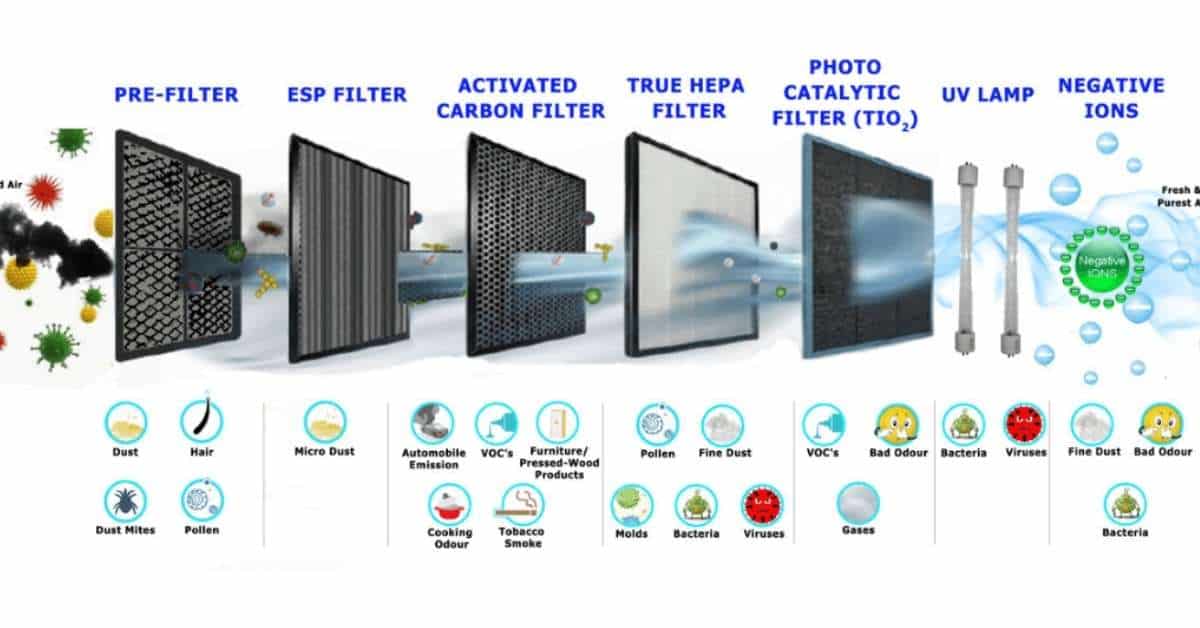
공기청정기에는 오염 물질, 부유 입자, 알레르기 유발 물질 및 바이러스로부터 공기를 살균하고 정화하기 위한 여러 필터 기술이 탑재되어 있습니다.
즉, 입자를 필터링하여 제거할 뿐만 아니라 바이러스를 살균하고 죽이는 기능도 있습니다.
공기 청정기에는 HEPA 필터, 활성탄, 이온화 장치 또는 자외선 또는 이 모든 것을 조합한 필터가 장착되어 있을 수 있습니다. 필터의 조합에 따라 공기에서 정확히 어떤 유형의 입자가 제거되는지가 결정됩니다. 일부 유형의 공기청정기는 공기 오염물질만 걸러내는 반면, 박테리아, 바이러스, 악취를 죽이고 중화시키는 필터가 장착된 제품도 있습니다.
많은 사람들이 HEPA 필터가 코로나 바이러스와 같은 작은 입자 크기의 바이러스를 포집할 수 있는지에 대해 매우 혼란스러워하고 잘못된 정보를 얻습니다.
HEPA 필터는 0.3마이크론 크기까지 99.97%의 공기 중 입자를 제거할 수 있습니다. COVID-19는 직경이 0.06마이크론에서 0.14마이크론 사이입니다.
이는 확산을 통해 이루어집니다. NASA의 과학적 연구에 따르면 HEPA 필터는 사실상 100%의 미립자를 포집할 수 있습니다.
코로나바이러스는 매우 작고 가벼워서 가스 분자와 부딪힐 때 튕겨나가는 것으로 밝혀졌습니다.
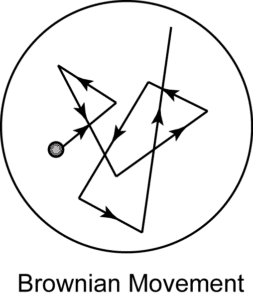
코로나 바이러스가 브라운 운동을 통해 무작위 지그재그 패턴으로 "날아다니는" 방법
이 지그재그 동작으로 인해 바이러스가 HEPA 필터를 통과할 때마다 필터 섬유에 달라붙게 됩니다.
즉, 코로나19 바이러스를 포함하여 0.1마이크론 크기까지 입자가 HEPA 필터에 갇힐 수 있습니다. 일단 포획되면 HEPA 필터는 바이러스를 포획하여 공기 중으로 다시 배출되지 않도록 합니다.
하지만 바이러스는 죽나요? HEPA 필터에 묻은 코로나바이러스는 사실상 지속될 수 있습니다. 48~72시간 죽거나 비활성화되기 전입니다.
자외선은 코로나19와 같은 바이러스를 죽이는 데 어떻게 작용하나요?
공기 청정 기능의 또 다른 유형은 자외선을 통합하는 것입니다. 자외선은 박테리아와 살아있는 미생물을 죽이고 제거하는 데 해롭습니다. 하지만
- 자외선 사용 방법 및,
- 바이러스에 노출된 기간.
UV 램프가 살균 성분 는 갇힌 박테리아를 통해 빛을 비추는 것으로 효과가 입증되었습니다. 그러나 흡입 공기가 자외선만 통과하면 바이러스를 죽이는 데 효과적이지 않을 수 있습니다.
공기 소독 청정기 는 HEPA 필터, 나일론 프리필터, 활성탄, UV 램프로 구성된 4단계 청소 기능이 통합되어 있어 오염 물질을 효과적으로 제거합니다.
이오나이저는 바이러스를 죽일 수 있나요?
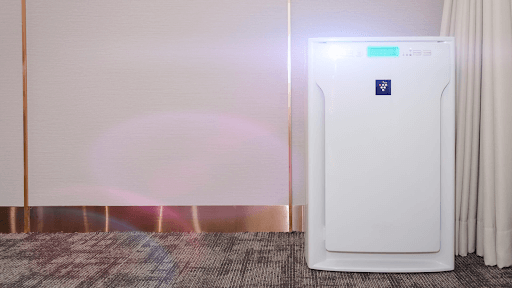
일부 공기청정기에는 공기 정화 기술의 일부로 이온화 장치가 있습니다. 이온화 장치는 공기 중 입자에 전하를 유도하는 방식으로 작동합니다.
그런 다음 이 입자는 반대 전하를 가진 물체와 표면을 향해 당겨집니다. 가구, 카펫, 바닥, 천장 등이 여기에 해당합니다. 음이온을 방출하여 양전하를 띠는 이온을 끌어당기는 공기청정기도 있습니다. 음이온은 유해한 오염 물질을 중화시킵니다. 그러나 이 솔루션은 오존 배출량 환경에 유해한 물질입니다.
바이러스는 약할 수 있지만 음전하만으로는 파괴할 수 없습니다. 따라서 이오나이저를 단독으로 사용하여 코로나19를 죽일 수는 없습니다. 하지만 한 가지 문제가 있습니다.
바이러스는 공기 중의 오염 물질에 달라붙을 수 있으므로 이오나이저를 사용하면 바이러스가 사용자에게 도달하는 것을 방지할 수 있습니다.
예를 들어 이 연구 에서는 연구자들이 이온화기를 사용하여 기니피그가 인플루엔자 바이러스에 감염되는 것을 예방하는 방법을 소개합니다.
광촉매, 탄소, 카테킨 필터
다른 필터에서 사용되는 다른 필터가 있습니다. 공기청정기 브랜드 광촉매 필터, 탄소 필터 또는 카테킨 필터와 같은 필터를 사용합니다.
- 공기 청정기 광촉매 필터 은 바이러스와 박테리아를 포획하여 죽일 수 있습니다. 또한 이온의 산화를 통해 바이러스와 박테리아를 분해할 수 있습니다.
- 카본 필터 또는 활성탄 필터 는 휘발성 유기 화합물, 연기, 스모그, 악취를 포집하는 데 사용되는 공기 청정기입니다.
- 카테킨 필터 는 항균 및 항진균 기능이 있지만 많은 공기청정기 브랜드에서 찾아보기 어렵습니다.
이 필터와 살균기는 사용해도 안전한가요?
정확히는 아닙니다. 적어도 오존에 직접 노출되지 않는다면 괜찮습니다. 자외선과 이오나이저가 있는 HEPA 필터 공기청정기는 사용해도 괜찮습니다.
하지만 오존을 흡입하는 것은 다른 이야기입니다. 기침, 목 자극, 알레르기를 유발할 수 있습니다. 또한 폐 손상을 유발하고 호흡 문제와 천식을 악화시킬 수 있습니다. 즉, 폐에 문제가 있는 경우 오존이나 이온화 장치가 있는 공기청정기를 사용해서는 안 됩니다.
연구에 따르면 오존 발생기는 곰팡이 예방이나 박테리아 억제에 그다지 효과적이지 않다는 사실도 밝혀졌습니다. 그렇기 때문에 병실이나 기타 의료 시설에서 사용하는 것은 안전하지 않습니다.
결론
이 글이 특정 유형의 공기청정기가 어떻게 바이러스를 죽이고 공기 중 전파를 통해 코로나19의 확산을 방지할 수 있는지 이해하는 데 도움이 되었기를 바랍니다.
앞서 지적했듯이 HEPA 필터가 장착된 공기청정기는 코로나 바이러스와 같은 아주 작은 범위의 바이러스도 포집할 수 있습니다. 이러한 바이러스는 48~78시간 동안 HEPA에 달라붙어 있다가 사멸할 수 있습니다.
하지만 가장 효과적인 공기 정화 시스템은 이러한 유해한 오염 물질을 파괴하는 자외선을 사용하는 시스템입니다. 또한 자외선은 오존 발생기나 이오나이저 청정기와 달리 해롭지 않습니다.
구매하려는 경우 자외선이있는 H13 HEPA 공기 청정기 도매 히소에어에서 도와드리겠습니다. 우리는 15년의 경험과 ISO 인증 공장을 갖춘 OEM/ODM입니다.


